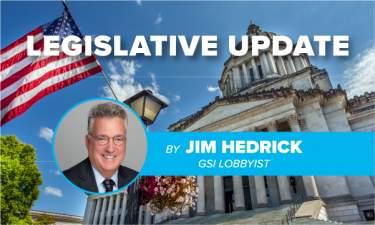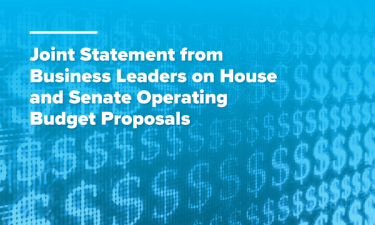By Tim Peckinpaugh, Partner with K&L Gates LLP
Inherent in our representative democracy is making policy that best serves the public good.
Policymaking is even more important today with our complex society and dynamic global economy. Everyone in the Spokane region benefits from policy decisions that promote well-functioning infrastructure, education to train new workforce, a growing economy to provide financial security for our families, and a strong national defense to protect us from potential adversaries.
The benefits of public policymaking stem from effective advocacy. Much has changed since our Constitution first safeguarded lobbying along with the free exercise of religion and the freedom of speech, the press, and the right to assemble.
As a policy practitioner myself, the two most important changes I have noticed are the advent of new technologies and the polarization of politics. Effective advocacy, essential to advancing the public interest, will need to adapt to these changes.
New technologies such as the internet and social media have revolutionized how we obtain and share information. This is especially true for policymaking. When I was a congressional staff aide more than 30 years ago, snail mail from constituents was the most effective way to communicate and advocate with elected representatives. I recall that the most sophisticated and well-funded lobbying campaigns would inundate Capitol Hill with thousands of postcards from constituents to drive public policymaking. Today effective lobbying is based on instantaneous and pervasive communication through online platforms.
The new generation of policymakers, such as congressional staffers, also consume information differently. Instead of dense policy briefing papers, they respond better to snappy visuals, videos, and podcasts. Successful lobbyists will need to deploy these new technologies to get their message across to affect policymaking.
Likewise, policy advocacy will need to adapt to fundamental changes in our political ethos. While I find it personally distasteful, the reality is that today’s politics has become balkanized with the public and their elected leaders grouped into rigid ideological camps. Spurred by today’s mass communications, the public seems to crave sharp edges and provocation in our political discourse. This also moves the center of political gravity to the extremes on both sides with a hollowing out of the middle.
I hope this brand of politics is a passing fad. But for now, effective advocacy needs to adjust to our polarized electorate. I am not suggesting that lobbying should emulate this style of politics. However, those seeking to affect the making of good public policy need to understand divided and partisan politics and adapt their messages and tactics accordingly.
It will be a challenge not to get pulled into the vortex of polarization, but hopefully, smart lobbyists can assist efforts to search for durable policy solutions that better serve the body politic.
In the end, despite new technologies and divisive politics, the personal touch may still be best. Most elected leaders want to do the right thing and make policy that advances the broader public interest. Hearing directly and personally from their constituents and their lobbyist advocates is still the most effective way for legislators to learn and make good policy.
A face-to-face personal conversation with a policymaker on reasonable and balanced policy outcomes is still the most impactful way to influence policy — and perhaps may help restore civility in politics.




